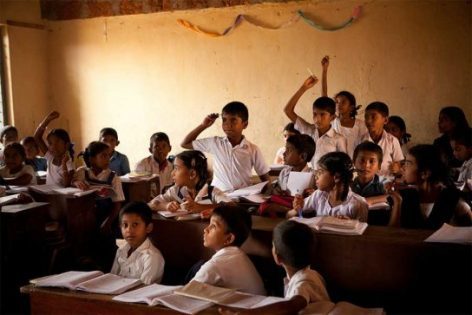Who is running this project?
This project is led by Prof Ianthi Tsimpli, University of Cambridge, Prof Theo Marinis, University of Konstanz, Jeanine Treffers-Daller, University of Reading, Suvarna Alladi (Nizams Institute of Medical Sciences, Hyderabad), Lina Muhopadyay (EFL-U, Delhi), Minati Panda (Jawarhal Nehru University, Delhi) Denes Szucs (University of Cambridge).
What is this project about?
This ESRC funded project examines the causes of low educational outcomes in schools in India where many children fail to achieve basic literacy and numeracy levels, while dropout rates, affecting girls more than boys, are very high. Multilingualism is the norm in India. However, rather than enjoying cognitive and learning advantages, multilingual Indian children show low levels of basic learning skills, including critical thinking and problem-solving. This project is innovative in seeking to disentangle the causes of this paradox. Working with Cambridge University and partners in India, the key question this project seeks to address is to explore how the complex dynamics of social, economic and geographical contexts affect the delivery of quality multilingual education in India. By conducting research among children living in Delhi and Hyderabad as well as in remote rural areas of Bihar where food deprivation, low sanitation, poverty and migration make school attendance and education hard to maintain, the project focuses on structural and language inequalities affecting educational quality in India.


